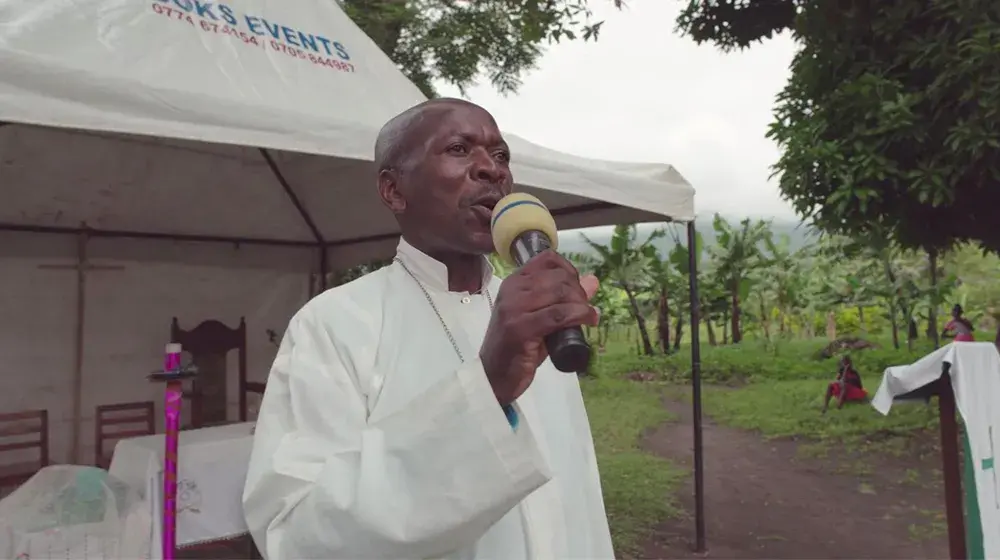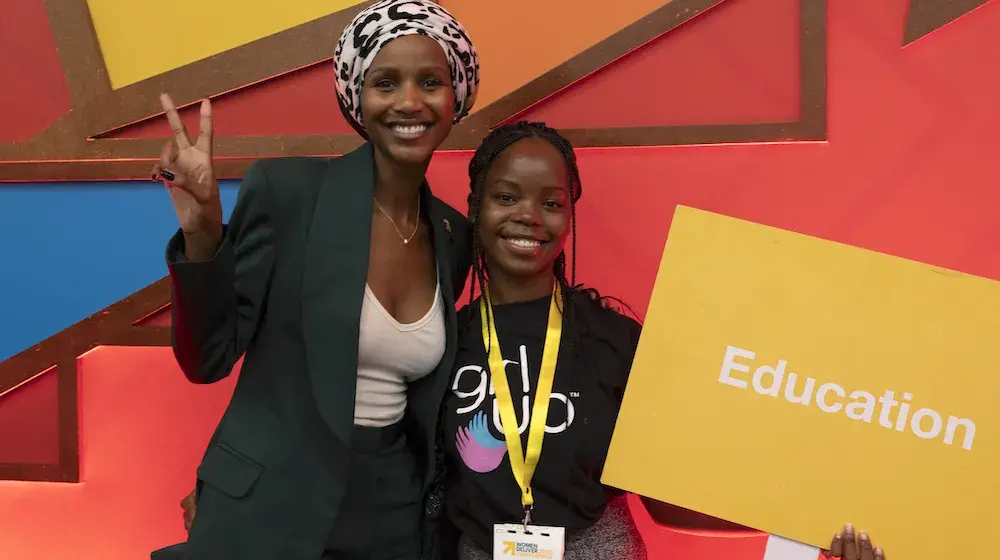UN Women and UNFPA regional offices in East and Southern Africa are collaborating toward growing a movement for positive masculinity and meaningful engagement of men and boys in advancing gender equality and women’s rights.
Kigali, 28 February 2022—Promoting positive forms of masculinity is a key element of the joint efforts of two United Nations agencies to achieve gender equality and end the shadow pandemic of violence against women and girls that has surged alongside the COVID-19 pandemic.
By challenging restrictive ideas about what it means to be a man—new spaces and opportunities are created for diverse women, men, girls and boys to engage and contribute to sustainable development and charting pathways for recovery from COVID-19. Shifting harmful social norms driving gender inequality and violence against women must be at the forefront of the efforts by all actors and institutions, and there is promising work underway from regional to local levels that has brought progress and can pave the way forward if better connected.
These were some of the key takeaways shared by participants at a critical dialogue convened today by UN Women and the United Nations Population Fund (UNFPA) in East and Southern Africa on the sidelines of the Eighth Session of the Africa Regional Forum on Sustainable Development. The virtual side event highlighted the efforts and progress to promote positive masculinities in support of a green, inclusive, and resilient recovery across the continent.
Through the joint virtual dialogue, UN Women and UNFPA brought together key actors from the African Union Commission, the Government of the Democratic Republic of the Congo, as well as civil society - including the African Population and Health Research Center, the Malawi Interfaith AIDS Alliance, Raising Voices from Uganda and the Rwanda Men’s Network, to showcase promising practices and opportunities in promoting more progressive forms of masculinity at individual, interpersonal institutional and societal levels. The virtual discussion drew key recommendations that can be taken forward by the Outcome Document of the Forum and showcase opportunities for accelerating progress across Africa and beyond.
Lack of inclusion
The COVID-19 pandemic has elevated the visibility of gender-based inequalities and exacerbated women and girls’ experiences of gender-based violence in its various forms, pulling back critical progress made on the SDGs. Patriarchy, toxic masculinities and harmful social norms are at the core of these inequalities, which are visible in all spaces and structures within society. The lack of inclusion of diverse women and men in leadership and decision-making processes related to the COVID-19 response has limited the impact and sustainability of solutions identified for pandemic recovery and deepened pre-pandemic inequalities.
In her opening remarks, UNFPA Deputy Regional Director, Beatrice Mutali said that ‘Evidence shows men and boys are the main perpetrators of VAWG – it is critical to engage them meaningfully, promoting gender-equitable norms, behaviours and attitudes starting at a very young age. What we see and what we hear shape us.’
The dialogue shed light on the importance of positive masculinity in addressing the interconnected issues of environmental justice and gender equality toward achievement of the SDG5 and by extension, all SDGs. The panelists shared their expert reflections on policy and programmatic actions to accelerate innovative models for transforming norms, approaches and strategies on positive masculinity, and highlighted African Union member states’ commitments to foster positive masculinity in the context of the SDGs and Africa Agenda 2063.
In her closing remarks, Adekemi Ndieli, Representative a.i. for UN Women Uganda said, “Today's discussion reaffirmed the need to promote positive masculinities to unlock the much-needed progress for the Sustainable Development Goals (SDGs) across Africa and also to build back better. These efforts must look beyond individual expressions of masculinities and work to transform the way masculinities maintain unequal structures of power within institutions and across society.”
The dialogue highlighted the potential of the movement for positive masculinity, and it reaffirmed the commitments made at the African Union 2021 Men’s Conference on Positive Masculinity, as well as progress made following the Men Engage Alliance’s Ubuntu Symposium. This will ensure the momentum towards the High-Level Political Forum 2022 for collective accountability of all actors and institutions in shaping more equitable norms and strengthened partnerships and solidarity with women’s and feminist movements in promoting positive masculinities and a more sustainable, green and equitable future for all.
UN Women media contact:
Aijamal Duishebaeva, UN Women East and Southern Africa Regional Office
+254 759 598882
aijamal.duishebaeva@unwomen.org
UNFPA media contact:
Daisy Leoncio, Regional Communications Adviser, UNFPA East and Southern Africa
+1 347 4919154
leoncio@unfpa.org




